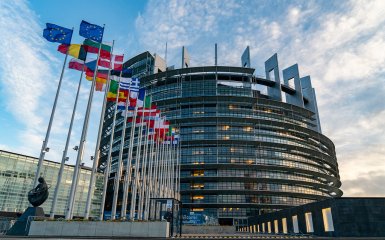On November 28, the European Parliament adopted a resolution condemning the October 26 parliamentary elections in Georgia, a candidate country for EU membership. The document states that these elections were neither free nor fair, which is another manifestation of the long-term departure from democracy, "for which the ruling party Georgian Dream bears full responsibility."
Points of attention
- The European Parliament condemns the October 26 parliamentary elections in Georgia as neither free nor fair, demanding new elections under international supervision.
- Serious election violations, including interference and voter intimidation, are attributed to the ruling party Georgian Dream, leading to calls for sanctions on Georgian officials and restrictions on EU contacts with the government.
- Russia's political interference in Georgia through disinformation poses a serious threat, prompting the EU to take action to stop this undermining of democracy.
- MEPs reject the results of the recent Georgian elections due to significant irregularities and call for re-holding them within a year under close international supervision and independent administration.
- The European Parliament's stance is focused on ensuring a democratic electoral process, imposing sanctions on responsible officials, and preventing further departure from the path to Euro-Atlantic integration for Georgia.
The European Parliament did not recognize the election results in Georgia
MEPs are rejecting the results of the recent parliamentary elections in Georgia due to significant irregularities and are calling for them to be re-held within a year.
MEPs condemn numerous and serious electoral irregularities, including documented cases of voter intimidation, vote manipulation, interference with election observers and the media, and reports of manipulation of the use of electronic voting machines.
According to the European Parliament, the voting results announced by the country's Central Election Commission "are not a reliable reflection of the will of the Georgian people." So the MEPs want the elections to be held again within a year under close international supervision and an independent election administration.
The EU should also impose sanctions and limit official contacts with the Georgian government
Supporting calls for an independent international investigation into allegations of election manipulation, the parliament wants the EU and its member states to impose personal sanctions on officials and political leaders in Georgia responsible for the departure from democracy, violations of electoral laws and standards, and abuse of state institutions.
This applies to:
Prime Minister Irakli Kobakhidze,
Kakha Kaladze, Mayor of Tbilisi and General Secretary of the ruling Georgian Dream party,
Speaker of the Georgian Parliament Shalva Papuashvili,
former prime minister and oligarch Bidzin Ivanishvili.
MEPs also call on the EU to strictly limit official EU-level contacts with the Georgian government and parliament, clearly stating that Georgia has suspended its EU integration process as a result of recently passed anti-democratic legislation, including the "law on transparency and external influence".
The parliament also strongly condemns Russia's systematic interference in Georgia's democratic processes through disinformation, such as the Global War Party conspiracy, which claims that the country's opposition will allegedly drag the country into a war with Russia at the behest of the West.
Members of the European Parliament seriously warn the Georgian authorities that any attempts to ban legally created political parties will further push the country away from the EU and make any steps towards joining the EU impossible. They also say that the "Georgian Dream" policy is incompatible with Georgia's Euro-Atlantic integration.
The resolution was adopted by 444 votes "for", 72 "against" and 82 "abstentions".
The authorities in Georgia are occupied by the Russian Federation
In 2014, Mamuka Mamulashvili created the "Georgian National Legion". The main goal is to help the Ukrainian people to preserve their independence. The "Georgian Legion" has become one of the largest foreign military formations in Ukraine.
Mamuka told Online.UA why Georgian volunteers are fighting for Ukraine, how many criminal cases have been opened against them in Russia, how the FSB works in his native country and why the victory of Ukraine is important for Georgia.
Russia was able to invest huge amounts of money in Georgia's political direction. Georgian collaborators, such as former Prime Minister Ivanishvili, infiltrated Georgian politics by promising that the authorities would lobby for Georgia's accession to NATO and the European Union.



